My Interest in Science and History - an Overview
Making sense of it all
Big Questions to Ponder
I have a burning desire to better understand the world around me. My quest for knowledge and education stems from a need to answer the following questions:
- What are the neurological origins and mechanisms that govern our consciousness? How did it develop? What mental processes are truly conscious and what are unconscious processes (how does the brain work, develop perceptions, solve problems, etc)? What level of consciousness do other living things experience?
- Why does the human experience encompass such a broad range of behaviours: from empathy towards others and self-sacrifice, to violence and genocide? (each and every one of us clearly has this innate capacity for 'good and evil') Can we evolve past our violent tendencies and create a conflict-free world? Can we solve our environmental challenges?
- What are the common psychological profiles and behaviours that humans express in their daily lives and how can we best deal with others when they are exhibiting specific behaviours? How are we each affected by our own psychological profiles and behaviours? Can we become happier by better understanding the roots of human thought and emotion?
- What is the true nature of physical 'matter', 'space' and 'time' as we perceive it? How did our world come to exist? What is the nature of the Universe at large and how did it come about?
- How did life start and evolve on Earth? Are there other other life forms extraterrestrially? Where? Can we ever hope to communicate with them?
- What is the nature of matter at the sub-atomic level and the forces that act on it?
- How did homo-sapiens evolve to its present state? What is our connection to other living things, even to star-dust? What is the ancient story of how we came to migrate and settle in different parts of the world and create vastly differing cultures, world views, religions and technologies? What makes us similar and what makes us different and what can we learn from this knowledge?
- How and when did language, music and art forms evolve? Why?
- How and why did our various cultural mythologies and religions develop and what was/is their purpose (and contribution to our societies)? Can we solve our current challenges in regards to radical Islam in the world today (and extreme religious views in general)?
Science Defined
I desire to seek answers from sources of research based on the scientific method, as opposed to sources that may be driven by various belief systems lacking hard evidence or rigorous proofs for their claims. Here is a reprint from Wikipedia on the definition of Science and the Scientific Method:
Science
The word 'Science' comes through the Old French, and is derived from the Latin word 'Scientia' for knowledge, which in turn comes from 'scio', "I know". The Proto-Indo-European root that yields scio is *skei-, and it means "cut, separate, or discern". Other words from the same root include Sanskrit chyati, "he cuts off", Greek schizo, "I split" (hence English schism, schizophrenia), Latin scindo, "I split" (hence English rescind). From the Middle Ages to the Enlightenment, science or scientia meant any systematic recorded knowledge. Science therefore had the same sort of very broad meaning that philosophy had at that time.
From classical times until the advent of the modern era, "philosophy" was roughly divided into natural philosophy and moral philosophy. In the 1800s, the term natural philosophy gradually gave way to the term natural science. Natural science was gradually specialized to its current domain, which typically includes the physical sciences and biological sciences. The social sciences, inheriting portions of the realm of moral philosophy, are currently also included under the auspices of science to the extent that these disciplines use empirical methods. As currently understood, moral philosophy still retains the study of ethics, regarded as a branch of philosophy.
Today, the primary meaning of 'Science' is generally limited to empirical science involving use of the scientific method. Examples of the broader use include political science and computer science, which are named according to an older and more general use of the word 'Science'.
Scientific method
The scientific method seeks to explain the events of nature in a reproducible way, and to use these reproductions to make useful predictions. It is done through observation of natural phenomena, and/or through experimentation that tries to simulate natural events under controlled conditions. It provides an objective process to find solutions to problems in a number of scientific and technological fields. Often scientists have a preference for one outcome over another, and scientists are conscientious that it is important that this preference does not bias their interpretation. A strict following of the scientific method attempts to minimize the influence of a scientist's bias on the outcome of an experiment. This can be achieved by correct experimental design, and a thorough peer review of the experimental results as well as conclusions of a study. In summary Science = Logic + Observation.
Scientists use models to refer to a description or depiction of something, specifically one which can be used to make predictions that can be tested by experiment or observation. A hypothesis is a contention that has been neither well supported nor yet ruled out by experiment. A theory, in the context of science, is a logically self-consistent model or framework for describing the behavior of certain natural phenomena. A theory typically describes the behavior of much broader sets of phenomena than a hypothesis—commonly, a large number of hypotheses may be logically bound together by a single theory. A physical law or law of nature is a scientific generalization based on a sufficiently large number of empirical observations that it is taken as fully verified.
Scientists never claim absolute knowledge of nature or the behavior of the subject of the field of study. Unlike a mathematical proof, a scientific theory is empirical, and is always open to falsification, if new evidence is presented. Even the most basic and fundamental theories may turn out to be imperfect if new observations are inconsistent with them. Critical to this process is making every relevant aspect of research publicly available, which permits peer review of published results, and also allows ongoing review and repeating of experiments and observations by multiple researchers operating independently of one another. Only by fulfilling these expectations can it be determined how reliable the experimental results are for potential use by others.
Magazine and Online Resources
In my quest to find answers to these questions I have found the following resources extremely useful:
- Wikipedia, the collaborative online encyclopedia, for a wide range of general and specific scientific inquiries (www.wikipedia.org)
- The Teaching Company Courses (www.teach12.com)
- Scientific American Magazine, as above plus the latest research reports (www.sciam.com)
- Scientific American Mind Magazine, for neurological (neuroscience and neuropsychology) scientific research reports (www.sciam.com/sciammind/)
- National Geographic Magazine, for general inquires into our environment and man's place within it (www.nationalgeographic.com)
- Human Genographic Project, for human migration history research results based on DNA analysis (www.nationalgeographic.com/genographic)
- Sky and Telescope Magazine, for physical cosmology and particle physics related research results (www.skyandtelescope.com)
Book Resources
These books, amongst many others that I have read, stand out for me as providing the most concise and readable information relating to the above questions. I am not personally endorsing any of these books in a manner that says I agree with the authors positions on every point that they posit, but I find their dialog invigorating, mind expanding, and refreshing.
In particular, I do not want to insult people of religious faith who may find atheist-oriented subject matter offensive - these books cover important topics from a scientific/logical perspective and highlight many of the important issues surrounding popular belief systems:
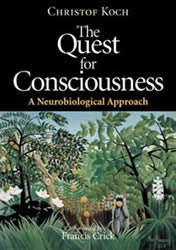
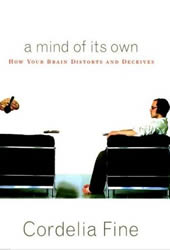
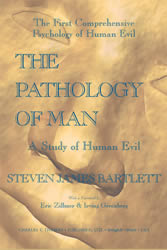
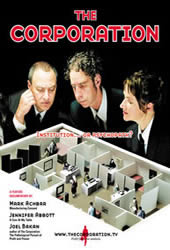
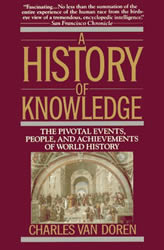
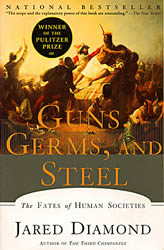
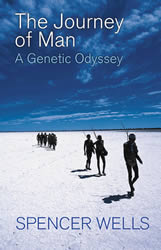
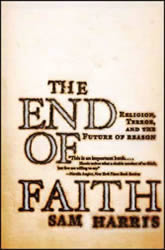
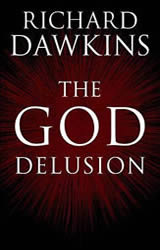
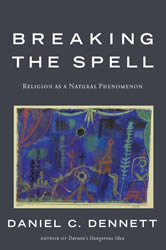
- The Quest for Consciousness, Christof Koch & Francis Crick (click here for more info)
- A Mind of its Own/How Your Brain Distorts and Deceives, Cordelia Fine (click here for a review)
- The Pathology of Man/A Study of Human Evil, Charles Thomas
- The Corporation/The Pathological Pursuit of Profit and Power, Joel Bakan (click here for a review)
- A History of Knowledge/The Pivotal Events, People and Achievements of World History, Charles van Doren
- Guns, Germs and Steel/The Fates of Human Societies, Jared Diamond (click here for a review)
- The Journey of Man/A Genetic Odyssey, Spencer Wells (click here for an interview with the author)
- The End of Faith/Religion, Terror, and the Future of Reason, Sam Harris
- The God Delusion, Richard Dawkins
- Breaking The Spell/Religion as a Natural Phenomenon, Daniel Dennett
